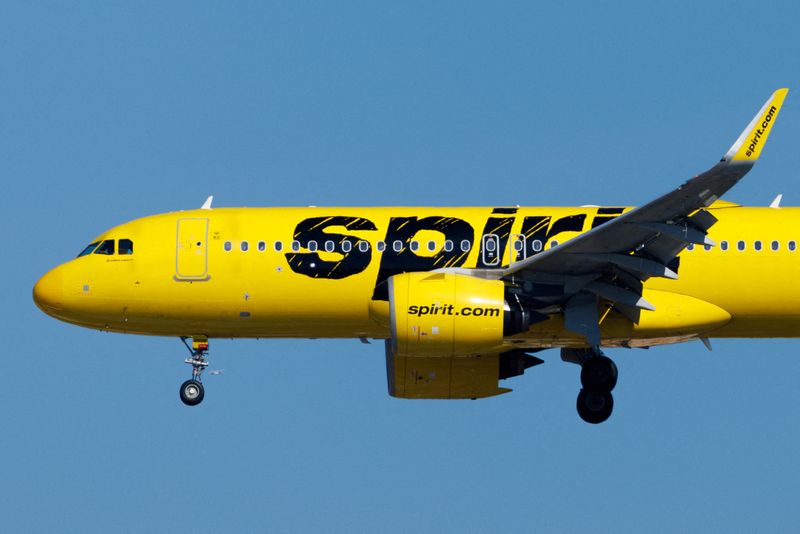This post was originally published on this site
https://i-invdn-com.investing.com/trkd-images/LYNXNPEK2S0CL_L.jpgThe carrier said in a filing with the U.S. Securities and Exchange Commission the agreement would boost liquidity by between $150 million and $200 million. The engine maker is an affiliate of RTX Corp’s Whitney.
The impact to Spirit’s liquidity will be determined by the number of days in 2024 in which Spirit aircraft are unavailable due to engine issues, according to the filing.
Under the agreement, Spirit agreed to release IAE and its affiliates from claims related to the impacted engines that have accrued or may accrue prior to Dec. 31, 2024.
Spirit intends to discuss arrangements with Pratt & Whitney for any Spirit aircraft that remain unavailable after the end of the year, the company said in the filing. Spirit removed engines from service and grounded some of its A320neo aircraft for inspection after Pratt & Whitney notified it of a rare condition in the powdered metal used to manufacture certain engine parts in July last year that would require removal, replacement or further inspection.
RTX Corp had received subpoenas from the U.S. SEC in February over an investigation related to disclosures in 2023 regarding use of powder metal in engines manufactured by its subsidiary Pratt and Whitney.
Spirit is among the carriers bearing the brunt of a snag with RTX’s Pratt & Whitney Geared Turbofan (GTF) engines. It is the largest operator of GTF-powered aircraft in the U.S.

In January, the airline had an average of 13 grounded neo aircraft and it estimates that number will climb steadily, to an average of about 40 in December 2024, as a result of issues with RTX’s engines.
Adding to Spirit’s troubles, rising operating costs and persistent supply chain problems have left it grappling with liquidity issues and struggling to return to sustainable profitability, raising concerns about the carrier’s ability to repay debt due to mature next year. Spirit’s survival was further jeopardized after regulators scrapped a $3.8 billion merger agreement with JetBlue Airways (NASDAQ:JBLU) that would have created the fifth-largest carrier in the U.S.


